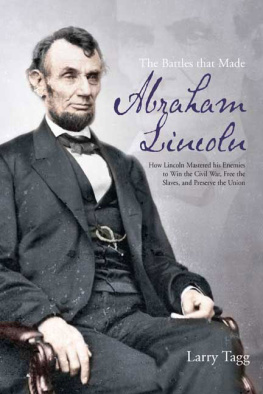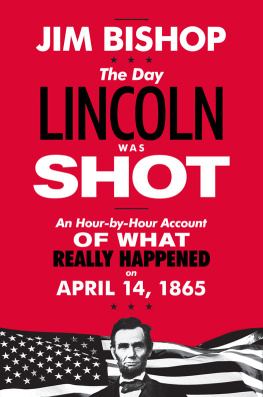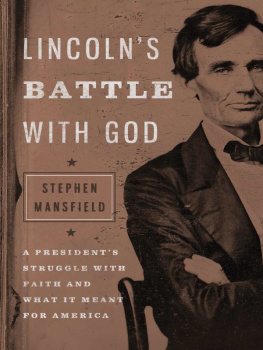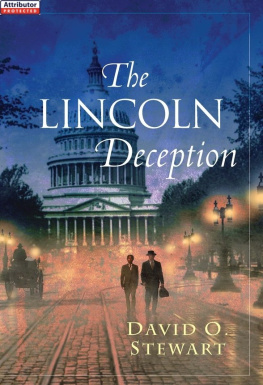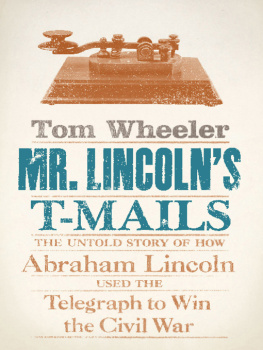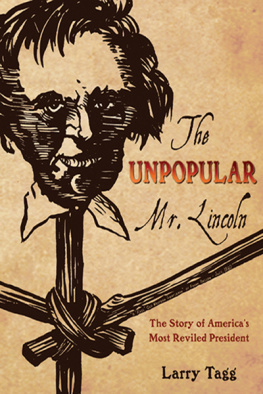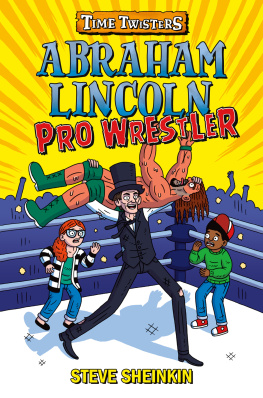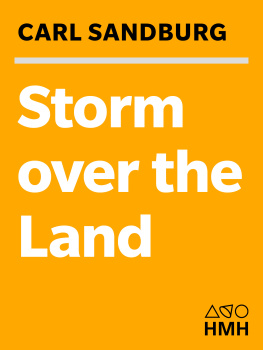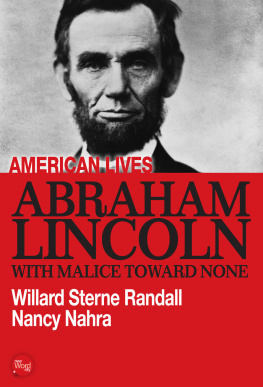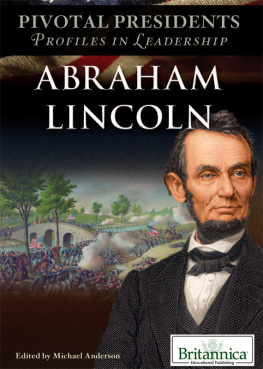Lincoln Abraham - The battles that made Abraham Lincoln : how Lincoln mastered his enemies to win the Civil War, free the slaves, and preserve the Union
Here you can read online Lincoln Abraham - The battles that made Abraham Lincoln : how Lincoln mastered his enemies to win the Civil War, free the slaves, and preserve the Union full text of the book (entire story) in english for free. Download pdf and epub, get meaning, cover and reviews about this ebook. City: El Dorado Hills, CA, United States, United States, year: 2012, publisher: Savas Beatie, genre: Politics. Description of the work, (preface) as well as reviews are available. Best literature library LitArk.com created for fans of good reading and offers a wide selection of genres:
Romance novel
Science fiction
Adventure
Detective
Science
History
Home and family
Prose
Art
Politics
Computer
Non-fiction
Religion
Business
Children
Humor
Choose a favorite category and find really read worthwhile books. Enjoy immersion in the world of imagination, feel the emotions of the characters or learn something new for yourself, make an fascinating discovery.
- Book:The battles that made Abraham Lincoln : how Lincoln mastered his enemies to win the Civil War, free the slaves, and preserve the Union
- Author:
- Publisher:Savas Beatie
- Genre:
- Year:2012
- City:El Dorado Hills, CA, United States, United States
- Rating:3 / 5
- Favourites:Add to favourites
- Your mark:
The battles that made Abraham Lincoln : how Lincoln mastered his enemies to win the Civil War, free the slaves, and preserve the Union: summary, description and annotation
We offer to read an annotation, description, summary or preface (depends on what the author of the book "The battles that made Abraham Lincoln : how Lincoln mastered his enemies to win the Civil War, free the slaves, and preserve the Union" wrote himself). If you haven't found the necessary information about the book — write in the comments, we will try to find it.
Torn by civil war, the era in which our sixteenth president lived and governed was the most rough-and-tumble in the history of American politics. The violence of the criticism with which Lincoln had to deal came from both sides of the Mason-Dixon line and was overwhelming. Indeed, the breadth and depth of the spectacular prejudice against him is often shocking for its cruelty, intensity, and unrelenting vigor. The plain truth is that Mr. Lincoln was deeply reviled by many who knew him personally, and by hundreds of thousands who only knew of him. His rise to greatness was in spite of their vitriol.
Boisterous and venomous enough to be good entertainment, The Battles that Made Abraham Lincoln rests upon a wide foundation of research. Tagg includes extensive treatment of the political context that begat Lincolns predicament, riding with the president-elect to Washington and walking with him through the bleak years of war up to and beyond assassination. Throughout, Tagg entertains with a lively writing style, outstanding storytelling verve, and an unconventional, wholly against-the-grain perspective that is sure to delight readers of all stripes.
Lincolns humanity has been unintentionally trivialized by some historians and writers who have obscured the real man behind a patina of bronze. Taggs groundbreaking book helps all of us better understand the great man Lincoln was, and how history is better viewed through a long-distance lens than contemporaneously. The Battles that Made Abraham Lincoln will be the must-read title for general readers and scholars alike.
REVIEWS
This is a well-written and edited book. Much to its credit, it is devoid of an authors opinion and presents the information in a straightforward manner and is a valuable addition to the Lincoln library, and a must for serious students. Civil War News
The Battles that Made Abraham Lincoln is beautifully written, with an almost rhythmic cadence at times. . . . it deserves a lofty place in the pantheon of Lincoln literature. Geoff Elliott, The Abraham Lincoln Blog
The author has done an impressive amount of research. . . . an impressive work. Sacramento Book Review
This is a tour de force demonstration of writing, reading, and thinking that never lets the reader down. Easily the Lincoln book of the Bicentennial of his birth and the best Lincoln tome I have seen in 15 years of compiling and reviewing Civil War book releases. Dimitri Rotov, Civil War Bookshelf
Lincoln Abraham: author's other books
Who wrote The battles that made Abraham Lincoln : how Lincoln mastered his enemies to win the Civil War, free the slaves, and preserve the Union? Find out the surname, the name of the author of the book and a list of all author's works by series.

